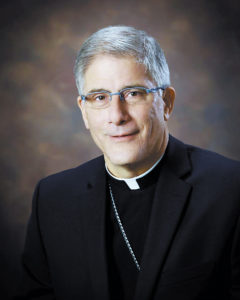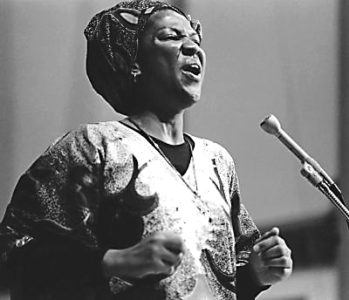
Bishop Joseph Kopacz
By Bishop Joseph Kopacz
Earlier this month the Catholic Bishops of the United States gathered for the annual spring meeting in Fort Lauderdale, Florida, to address a range of pastoral realities that currently affect the Church and society to one degree or another. The bishops approved the revisions for The Charter for the Protection of Children and Young People, originally promulgated in 2002, reaffirming once again the Church’s commitment to protect our children and youth, and to provide healing and reconciliation for any in our midst who have experienced the scourge of sexual abuse. (See page 19 for related story.)
There was also a hearty and, at times, heated discussion among the bishops over the Faithful Citizenship Document that has been a teaching tool in the formation of conscience in our struggle to be faithful Catholic disciples of the Lord Jesus, as well as citizens committed to the common good of our communities and nation. What are the necessary changes in the text to stay abreast of the current onslaughts against the dignity of the human person, such as poverty, the environment, immigration and racism? This evoked a number of passionate responses.
An expansion in the Health Care Directives that guide current and future mergers for Catholic Health Systems received the approval of the bishops, as well as well liturgical developments in the Roman Missal.
A document in the works for a few years, Encountering Christ in Harmony, addressing the rapidly growing population in the United States of Asian and Pacific Island Catholics, was also given near unanimous approval. Lastly, Bishop Shelton Fabre of Houma Thibodaux, Louisiana, gave an update regarding the pastoral letter on racism on which the bishops will vote later this year in Baltimore.
Against the backdrop of these two documents the dawn is breaking for the Diocese of Jackson as we prepare to formalize the Cause for Sister Thea Bowman, FSPA, in November of this year at the annual meeting of the United States Conference of Catholic Bishops.
Our diocesan team has been working assiduously in the background to follow the process that gives us a slot on the agenda for November’s meeting that will request the approval of the bishops for Sister Thea’s Cause for Canonization. We expect that she will receive wholehearted endorsement from the body of bishops and this is an exciting prospect for the Diocese of Jackson and for the Church in the United States.

Sister Thea is now officially recognized as Servant of God, the first step on the journey to formal canonization. Her prophetic voice, her spirit, her heart and mind and her heritage are sorely needed in our contemporary world, at home and abroad as we struggle to overcome all that divides us. She was passionate about her African American heritage as well as the growing cultural diversity in our society. The rotten fruit of racism, one ethnic or racial group against another, are tearing at the seams of our society. Without a doubt, the pastoral letter on racism that the bishops will promulgate in November is incarnated in Sister’s Thea’s cause as her life and witness – Continued from page 3 –
are raised up for many within the Church and far beyond.
From an article by the Redemptorist priest, Father Maurice Nutt, the Vice Postulator for her cause, we enter into her amazing story. Meet Sister Thea Bowman, granddaughter of a slave on the road to Canonization. “She was born on December 29, 1937, in Yazoo City, Mississippi. Her grandfather was born a slave and she was raised into the Methodist faith. After her family moved to Canton, Mississippi, Bowman was enrolled in Holy Child Jesus School. While there she was drawn to the Catholic faith and asked her parents if she could convert at age nine. When she turned 15 Bowman moved to La Crosse, Wisconsin, and joined the Franciscan Sisters of Perpetual Adoration (FSPA), the Religious Sisters who inspired her at Holy Child of Jesus school. She became the first African American Sister of that order.”
Her witness will be a fount of new life for many as her story gains new traction with the formalization of the Cause for Canonization. I leave you with her own words that portray her spirit and vision. “What does it mean to be black and Catholic?…It means that I bring myself, my black self. All that I am. All that I have. All that I hope to become. I bring my whole story, my traditions, my experience, my culture, my African-American song and dance and gesture and movement and teaching and preaching and healing and responsibility as gift to the church … I think the difference between me and some people is that I am content to do my little bit. Sometimes people think that they have to do big things in order to make change. But if each one would light a candle, we’d have a tremendous light.”
After struggling with breast cancer Sister Thea died on March 30, 1990. Her Cause for Canonization was officially opened on February 9, 2018.
